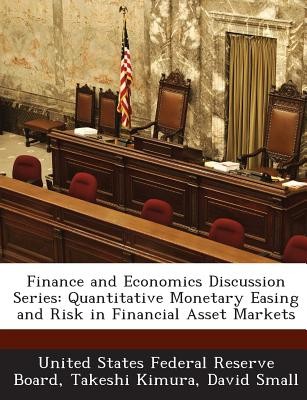| Finance and Economics Discussion Series: Quantitative Monetary Easing and Risk in Financial Asset Markets Contributor(s): Kimura, Takeshi (Author), Small, David (Author), United States Federal Reserve Board (Created by) |
|
 |
ISBN: 1288711816 ISBN-13: 9781288711819 Publisher: Bibliogov OUR PRICE: $16.86 Product Type: Paperback - Other Formats Published: February 2013 |
| Additional Information |
| BISAC Categories: - Political Science |
| Physical Information: 0.12" H x 7.44" W x 9.69" (0.27 lbs) 58 pages |
| Descriptions, Reviews, Etc. |
| Publisher Description: In this paper, we empirically examine the portfolio-rebalancing effects stemming from the policy of "quantitative monetary easing" recently undertaken by the Bank of Japan when the nominal short-term interest rate was virtually at zero. Portfolio-rebalancing effects resulting from the open market purchase of long-term government bonds under this policy have been statistically significant. Our results also show that the portfolio-rebalancing effects were beneficial in that they reduced risk premiums on assets with counter-cyclical returns, such as government and high-grade corporate bonds. But, they may have generated the adverse effects of increasing risk premiums on assets with pro-cyclical returns, such as equities and low-grade corporate bonds. These results are consistent with a CAPM framework in which business-cycle risk importantly affects risk premiums. Our estimates capture only some of the effects of quantitative easing and thus do not imply that the complete set of effects were adverse on net for Japan's economy. However, our analysis counsels caution in accepting the view that, ceteris paribus, a massive large-scale purchase of long-term government bonds by a central bank provides unambiguously positive net benefits to financial markets at zero short-term interest rates. |